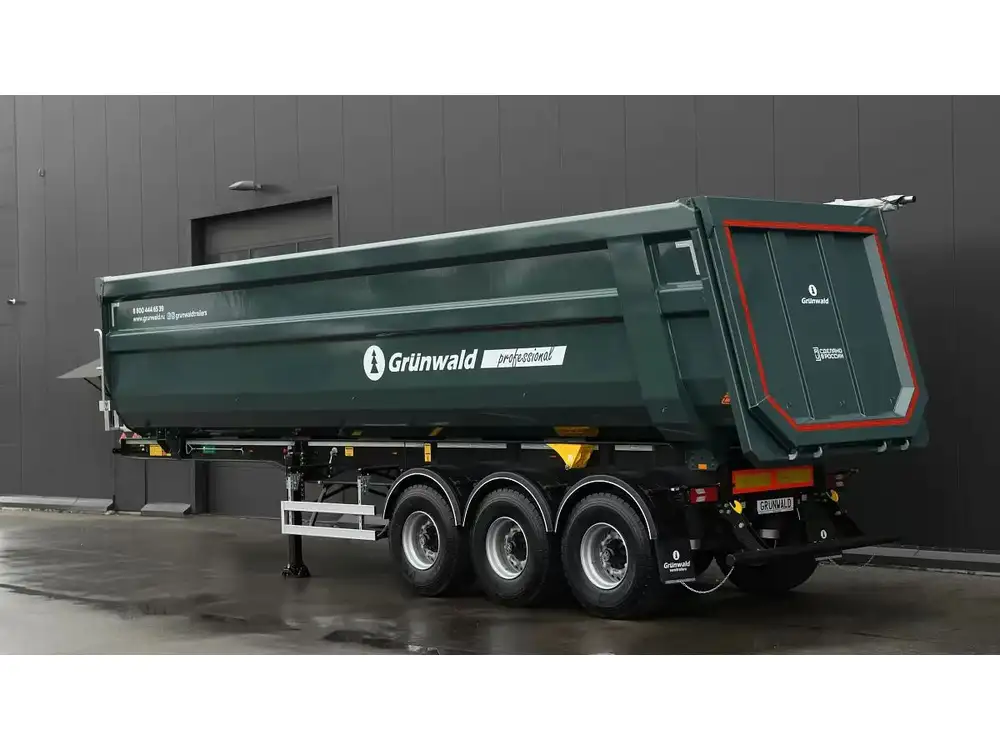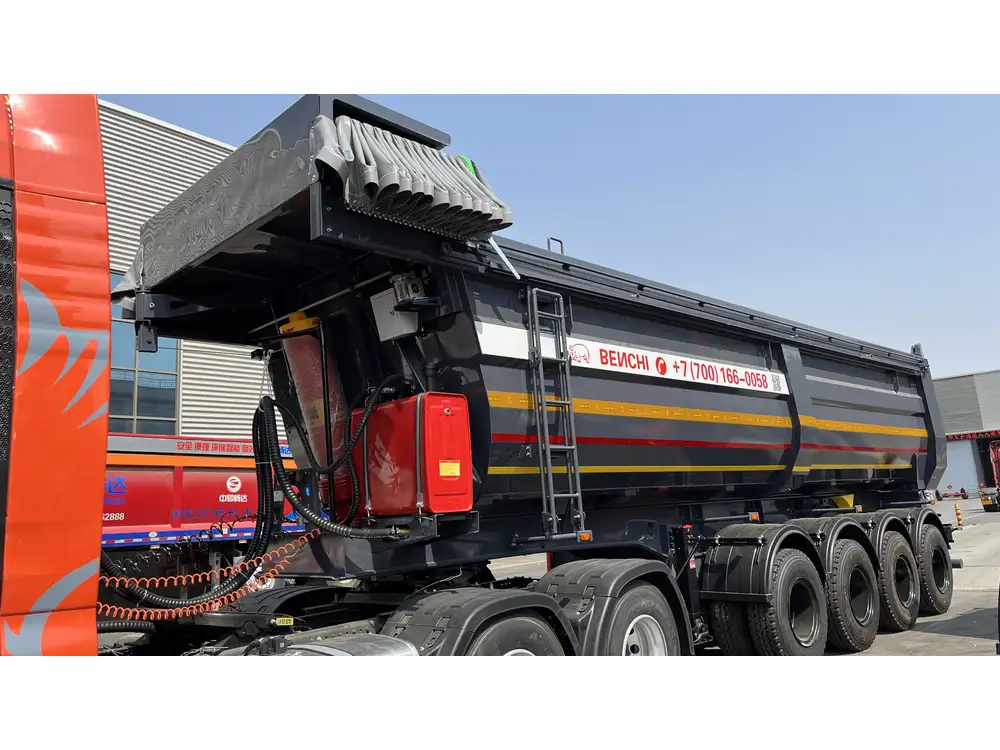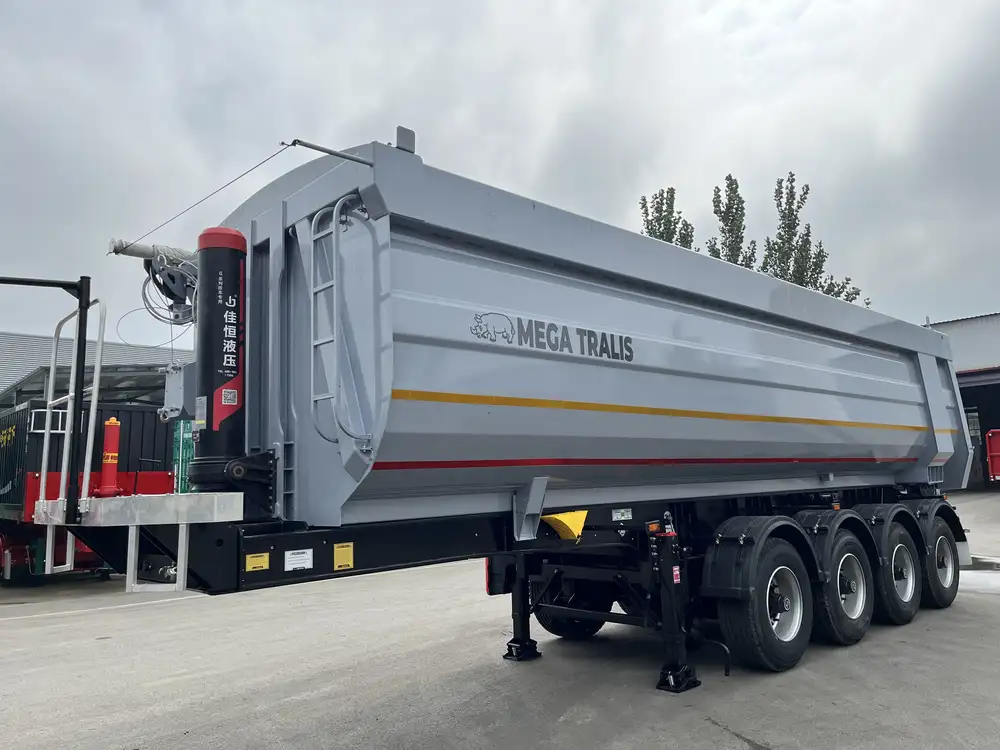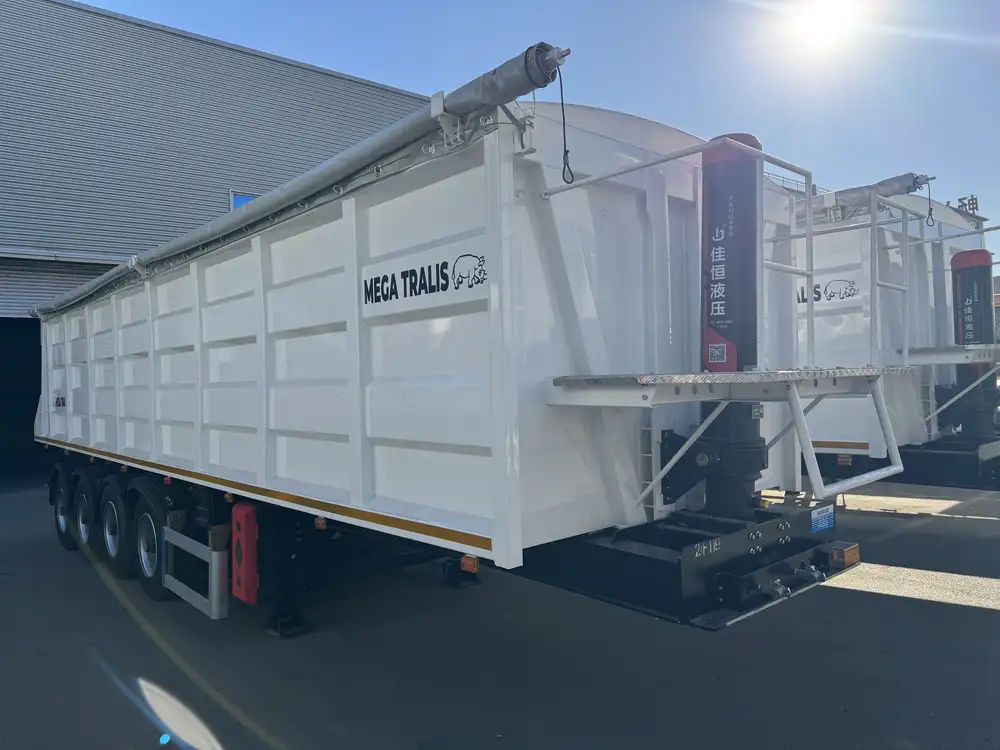In the landscape of heavy-duty machinery and transportation solutions, understanding the specifications of a 16-foot dump trailer is crucial for businesses that rely on hauling materials. One of the key considerations is the weight of the trailer itself, as it directly impacts load capacity, towing requirements, and overall efficiency in operational settings. This article aims to provide an in-depth analysis of the weight of 16-foot dump trailers, how it varies based on materials and designs, and more.
The Standard Weight of a 16-Foot Dump Trailer
Typically, a 16-foot dump trailer has an empty weight (also referred to as the curb weight) ranging from 3,000 to 5,000 pounds. This weight can fluctuate based on several factors, including:
| Factor | Impact on Weight |
|---|---|
| Materials Used | Steel vs. Aluminum |
| Design Variations | Dual axle vs. single axle |
| Additional Features | Extended sidewalls, reinforced frames |
| Manufacturer Differences | Brand-specific build choices |
Materials Used in Construction
The construction material of the trailer plays a significant role in determining its weight.
Steel Trailers: Typically heavier, steel trailers are robust and durable, making them ideal for heavy-duty applications. A 16-foot steel dump trailer may weigh up to 4,500 pounds due to the material’s density.
Aluminum Trailers: More lightweight compared to steel, aluminum dump trailers can weigh approximately 3,000 to 3,500 pounds. These are preferred for applications that prioritize fuel efficiency and less wear on towing vehicles.

Design Variations
Different designs can drastically impact the weight of a 16-foot dump trailer:
Single Axle Trailers: Generally lighter, a single axle setup can provide adequate support for less weight, often ranging from 3,000 to 4,000 pounds.
Dual Axle Trailers: Offering better weight distribution and support, these can weigh around 4,000 to 5,000 pounds, making them suitable for heavier loads.
Additional Features and Customizations
Having added features can also influence a trailer’s weight significantly. For example:
Extended Sidewalls: These may offer greater load capacity, but they also add weight. A trailer with extra features can tip towards the higher end of the weight scale.
Reinforced Frames: Essential for heavy hauling but can increase the empty weight of the trailer.
Manufacturer Differences
Brand specifications matter; various manufacturers offer different designs and material choices based on their engineers’ discretion. It’s advisable to review technical specifications from reputable manufacturers such as Big Tex Trailers, Load Trail, or Bigger Trailers to assess subjective weight considerations.

Load Capacity Considerations
Once the weight of the trailer is understood, it’s essential to consider its load capacity. For a 16-foot dump trailer, the typical load capacity ranges from 8,000 to 10,000 pounds, subject to the trailer’s Gross Vehicle Weight Rating (GVWR).
| GVWR | Empty Weight | Max Load Capacity |
|---|---|---|
| 10,000 pounds | 4,000 pounds | 6,000 pounds |
| 12,000 pounds | 5,000 pounds | 7,000 pounds |
Importance of Knowing Load Capacity
Legal Compliance: Adhering to local regulations on maximum towing capacities ensures both legal compliance and safety.
Operational Efficiency: Understanding these parameters helps optimize operations, ensuring that the right trailer is matched with the appropriate vehicle for towing.
Avoiding Overloads: Excess weight can lead to excessive wear on tires, brakes, and other components, thus increasing maintenance costs and risking accidents.
Calculating Your Needs: How to Determine the Right Trailer
When selecting a 16-foot dump trailer, weigh the following considerations:

1. Intended Use
- Landscaping: Regular loads of soil and stone require a dependable weight rating and capacity.
- Construction: You may need higher load capacities to manage heavier materials like concrete.
2. Towing Vehicle Capacity
A crucial variable—check your vehicle’s towing capacity against the GVWR of your trailer plus the estimated load. This ensures that your vehicle can handle the weight efficiently without causing strain on the engine or brakes.
3. Frequency of Use
For contractors or businesses that frequently utilize dump trailers, investing in a heavier-duty model could provide better durability over time.

4. Road Conditions
Depending on whether you’re navigating city streets or rough terrain, your choice of axle configuration and weight considerations may change.
Advantages of a 16-Foot Dump Trailer
Versatility
A 16-foot dump trailer shines in versatility. From hauling gravel to transporting debris, the dimension allows a range of loads, making it indispensable for contractors, landscapers, and homeowners alike.

Enhanced Maneuverability
While larger trailers are available, the compact 16-foot trailer provides enhanced maneuverability in tight spaces—a significant advantage when working in urban settings or crowded job sites.
Cost-Effectiveness
Given the balance between weight and capacity, these trailers offer an optimal solution without breaking the budget, catering to small and medium-sized business needs.
Maintenance Tips to Extend Lifespan
To maximize the investment in a 16-foot dump trailer, consider these maintenance practices:

Regular Inspections
Check the frame, axles, and tires regularly for signs of wear and tear. Addressing problems early can prevent costly repairs later.
Tire Care
Proper inflation levels should be maintained, as under-inflated tires can affect handling and fuel efficiency while increasing wear on components.
Cleanliness
Regular cleaning protects against the corrosive effects of dirt, chemicals, and road salt, prolonging the life of the trailer.

Conclusion
In conclusion, the weight of a 16-foot dump trailer typically ranges between 3,000 and 5,000 pounds, influenced by materials, design, and manufacturer specifications. Understanding these dynamics helps in selecting the right trailer that meets your operational needs while ensuring safety and compliance with legal standards. By integrating maintenance practices and understanding load capacities, businesses can leverage their 16-foot dump trailers effectively, ensuring optimal performance year after year.
Arming yourself with this knowledge not only enhances your operational efficiency but also positions your business for success in competitive landscapes. Whether navigating city streets or managing a construction site, the right dump trailer will serve as a reliable asset in your business toolkit.



